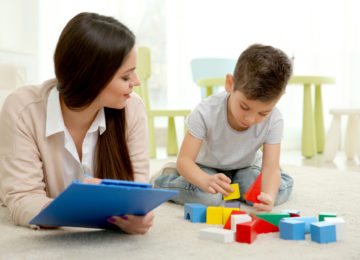Children thrive when given the right spaces to move, explore and test their limits. Parents often hear mixed advice about what structured movement means for young learners, leaving them unsure of its real value. That is where gymnasium classes come in. Far from being just a chance to burn off energy, they nurture coordination, resilience and teamwork in ways that shape daily life.
Here are the reasons some familiar assumptions about children’s activity don’t hold up, and why these classes deserve a second look.
1. It’s not only about physical fitness
Many assume that these classes focus purely on running, jumping and stretching. In reality, these sessions introduce problem-solving, sequencing and memory work. A child remembering how to climb, roll and land safely is also learning order, attention and discipline.
2. They’re not too advanced for younger children
A frequent concern is that structured movement is beyond the reach of preschoolers. The truth is, lesson structures are carefully scaled. Gymnastics lesson plans for preschool use short bursts, imaginative play and fun themes to guide children through safe, age-appropriate exercises. A child pretending to be a frog hopping on soft mats is not just playing but also building leg strength and balance.
3. They don’t make children overly competitive
Parents sometimes fear early group activities pressure children to compete. Properly planned classes focus on cooperation, sharing equipment and cheering gymnastic mates on. Instead of creating rivalry, they often teach empathy and understanding, skills that children carry into school settings.
4. The equipment isn’t risky when used correctly
Seeing bars, beams and padded blocks can look intimidating. Yet these are specifically designed with safety in mind. Coaches introduce one element at a time, ensuring children feel secure and confident. The padded floors and spotter support reduce risks, helping kids learn how to fall safely rather than fear movement.
5. Attention spans are not a barrier
Some believe young children simply cannot focus on structured sessions. Preschool gymnastics lesson plans address this by weaving stories and games into the activities. A warm-up might involve pretending to sail a boat, where stretching becomes reaching for the sail and balance work becomes “walking the plank.” Engagement stays high when imagination leads.
6. It’s not a substitute for outdoor play
Parents may think gymnasium classes take children away from the fresh air they need. The reality is that indoor classes complement, not replace, outdoor activities. They allow safe practice during rainy days, while giving children the muscle control that translates to climbing playground structures more confidently.
7. The benefits are not only short-term
Some expect the results of structured activity to vanish after the class ends. On the contrary, consistent routines instil lifelong habits. A child learning controlled breathing in a balance pose is building early mindfulness skills that can ease stress in later school years.
8. Teachers aren’t drill sergeants
It is easy to picture instructors pushing children too hard, but gymnasium coaches are usually trained in early childhood development. They know how to encourage rather than command. Sessions are centred on praising, moderate correction, and celebrating minor accomplishments such as landing a leap with both feet together.
9. Flexibility matters more than perfection
Many parents think children must follow exact rules to benefit. Yet the beauty of preschool gymnastics lesson plans is their adaptability. If a child is shy, the coach might encourage them to try movements alongside a friend. If another youngster has an abundance of energy, their enthusiasm can be channelled into demonstrating an activity.
10. It’s not an “extra” but part of development
The final misconception is that gymnasium classes are optional luxuries. Movement, balance and rhythm are not extras but central to how children learn to interact with their world. A child who gains confidence climbing a low beam may later tackle classroom challenges with the same determination.
Many myths about children’s activity programmes paint a narrow picture. These classes are far more than a way to tire children out; they nurture physical skill, confidence, imagination and teamwork. Preschool gymnastics lesson plans, when tailored thoughtfully, turn structured play into stepping stones for growth. For parents wondering if these classes are worth the effort, the evidence suggests they are a valuable part of early development.
Contact BearyFun Gym to learn more about creating engaging gymnastics experiences for children.






